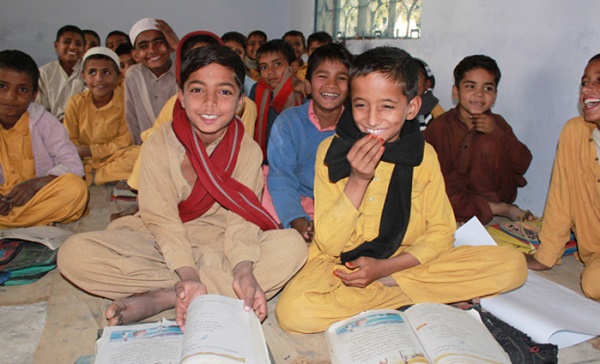A closer look at humanitarian aid in Pakistan

The country of Pakistan struggles with several issues. Military operations against insurgent activities within the country have caused many Pakistani people to become displaced. Pakistan is also home to 3 million Afghans, with 1.4 million being registered refugees. This makes Pakistan the second-largest refugee host country in the world. Additionally, Pakistan suffers from natural disasters and food shortages. Pakistan’s economy suffers from imbalance because, for short periods, the economy does well, and then, it declines. This is what the World Bank terms “boom-bust cycles.” These collective issues mean humanitarian aid in Pakistan is imperative in order to address the country’s pressing issues.
The European Union Assists
The European Union (E.U.) has contributed a fair amount of humanitarian aid to Pakistan. In 2020, the E.U. addressed some of the concerns regarding internally displaced Pakistani people and Afghan refugees by providing around €40 million worth of aid. Around 60% of this amount goes towards resolving health concerns that the COVID-19 pandemic has caused. The pandemic has put the Pakistani healthcare system under strain, which makes aid increasingly important. The humanitarian aid in Pakistan is also helping to give displaced Pakistanis access to quality education and sanitation facilities.
Aid also reaches Afghan refugees who have not integrated into Pakistani society and instead live in isolated communities within Pakistan. The E.U. helps these Afghan refugees by providing them with proper healthcare, education and sanitation facilities. The E.U. support also addresses the natural disasters that occur in Pakistan. The E.U. provided €1.15 million to Pakistan in August 2020 when the country experienced severe flooding. The aid that the E.U. provided allowed for shelter toolkits, personal hygiene supplies and access to reliable water and sanitation for families that these events impacted.
The International Rescue Committee Helps
The International Rescue Committee (IRC) is another organization providing significant humanitarian aid in Pakistan. From 2013 to 2019, the IRC worked with Pakistan on the Pakistan Reading Project (PRP), which aimed to improve the reading skills of 1.3 million Pakistani children. The program reached more than 1.7 million students and trained more than 27,000 teachers. The IRC further supports the education of Pakistani children by building and repairing schools. Considering the amount of displaced Pakistani people and Afghan refugees, the IRC provides what it calls “child-friendly places.” These are areas where children are safe to interact with other children and learn and heal from traumatic events they have experienced.
The Aga Khan Agency for Habitat
The Aga Khan Agency for Habitat (AKAH) is an organization that has been providing humanitarian aid in Pakistan since 1988. One area, in particular, is disaster response. The AKAH trains Pakistani volunteers on how to deal with any natural disasters they may encounter. These volunteers would be the first responders if a natural disaster occurs in the area they live in. These volunteers are called Community Emergency Response Teams (CERTs). The AKAH has been able to establish 162 CERTs and a total of 36,000 volunteers serve as first responders. More than 50% of the 36,000 volunteers are women.
Pakistan is an impoverished nation and therefore needs humanitarian assistance to deal with the many challenges it faces. These three organizations provide aid that addresses these pressing issues.





